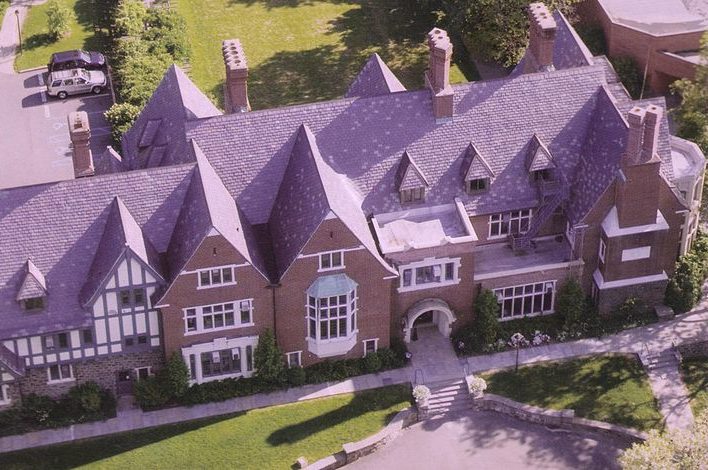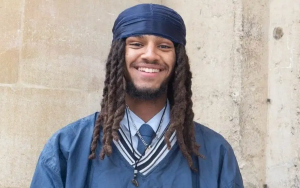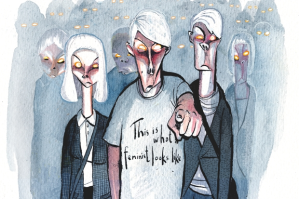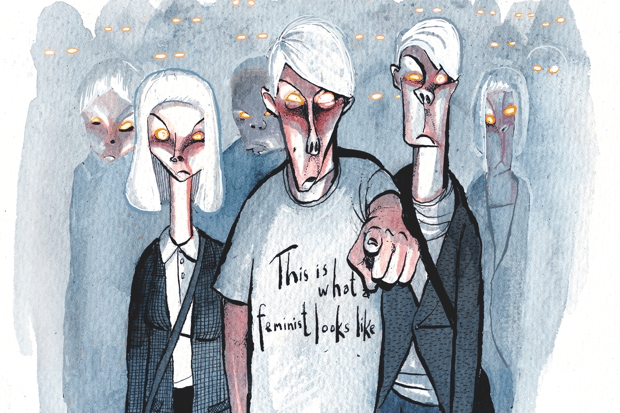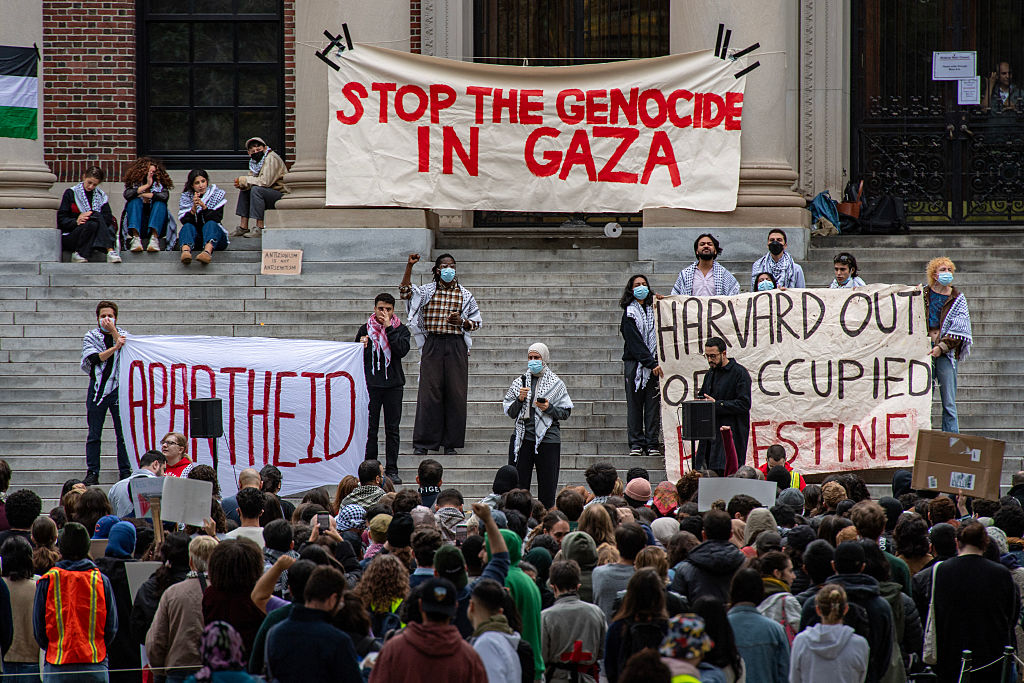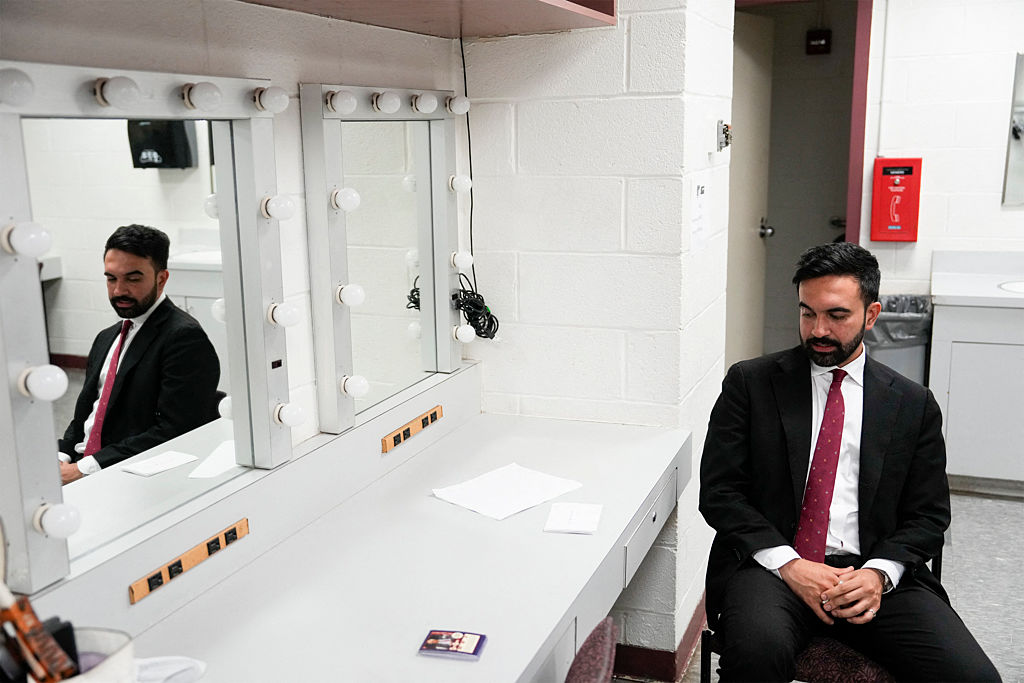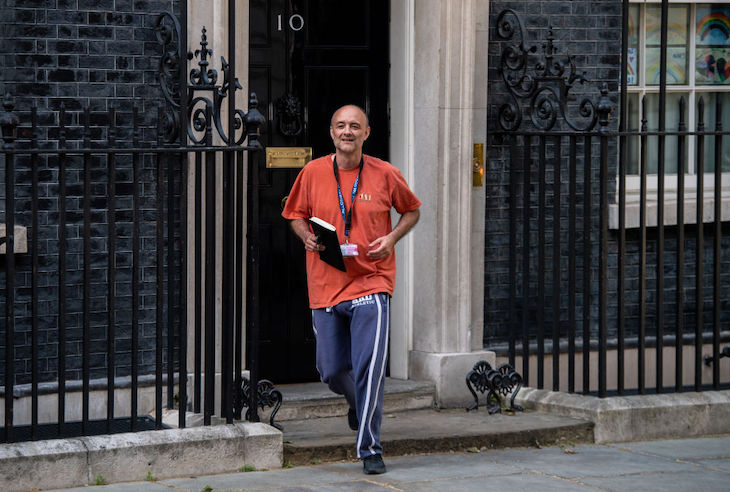It’s well known that the question of who can speak and on what topics has become a flashpoint for controversy on our nation’s college and university campuses.
I experienced intimidation firsthand after publishing an op-ed in the New York Times in which I questioned some of seemingly liberal, lopsided programming at Sarah Lawrence College (one of the most proudly progressive schools, where I am a tenured professor). I suggested that more balance was needed given our polarized times and reiterated my concerns about collegiate ideological echo chambers.
Within hours, my office door and surrounding corridor was vandalized. Pictures of my family were taken and bumper stickers that I had placed on the door to create a welcoming environment for students were stripped off. The vandals covered my door and surrounding hallway area with hateful paraphernalia intended to intimidate me into leaving the school. I received subsequent threats, and an alumna I have never met claims to be actively working on ways to ‘ruin my life’ while many others are demanding that my tenure be stripped all because I wrote a relatively tame article with which they disagree.
Following the defacement of my door, I was disappointed by the lack of a clear stand against violence and intimidation, and the lack of support for academic freedom and diversity of thought I expected from the College administrators. In fact, a note I received from a College official described the act as ‘alleged vandalism.’
There is a culture at Sarah Lawrence College which is regularly reinforced by various students, faculty, and administrators: tacitly regulate what topics are open to debate and identify which questions should simply be overlooked for fear that asking them could lead to significant negative consequences.
This attitude may be widespread.
A new national survey, entitled ‘Most US College Students Afraid to Disagree with Professors’, was commissioned by the William F. Buckley, Jr. Program at Yale, to distill how college students feel about the freedom to speak on campus. The results reveal that a majority of students not only feel intimidated about sharing their beliefs if they disagree with the faculty member teaching the course, but also that a majority of them worry about speaking up if their views seemingly conflict with their peers.
Regardless of politics and values, this is an absolutely terrifying finding because campuses are the spaces where ideas should be voiced, challenged, and debated. Knowing that a large number of students are afraid to ask questions and share their ideas means that the very core of higher education is at stake.
It’s not just students who are afraid. The fear of speaking truths or questioning others now silences the faculty, who are meant to be thought leaders on campus. Conservative faculty members are the most at risk.
In a 2017 national survey of faculty, 71 percent of faculty agreed with the statement, ‘[I] feel comfortable sharing my opinion on my college campus’ [with other faculty members]. This number drops to 60 percent for those who identify as conservative and jumps to 82 percent for those who are liberal. When asked, ‘Are you reluctant to express your political beliefs to your colleagues for fear of negative consequences?’ 93 percent of liberal faculty had no issue expressing their political beliefs to their colleagues compared to two-thirds of conservative professors.
Faculty were also asked, ‘How often, if at all, have you avoided expressing a particular point of view on an issue because you expected a negative reaction from other students or faculty?’ Two-thirds of conservative professors stated that they simply avoided sharing their opinions because of negative reactions compared to just one-third of liberals. This significant difference is strong evidence that viewpoint diversity is being silenced. Conservative professors – an endangered minority on campus – are well aware of the possible ramifications of sharing their views and fear professional repercussions for disagreeing with their liberal faculty and administrative colleagues.
I was worried that the College administration’s decision to neither immediately and explicitly condemn the vandalism of my office door nor demonstrate support for academic freedom had the potential to animate and empower those people in the Sarah Lawrence community who want to silence dissent by using intimidating tactics.
Sadly, since the original vandalism, it appears that the college community may have been emboldened to now very publicly slander me because no public statement was made by the Sarah Lawrence administration which linked vandalism and threats of violence to a piece of written work and explicitly condemned such action and asserted particular consequences. Threats of violence, vandalism, and slanderous claims have no place on campus whatsoever and my story should be frightening to students and faculty who don’t subscribe to their colleagues’ groupthink.
After three weeks of me and countless others asking for the college president to take the right position, she finally issued a statement in support of free speech where she asserted that, ‘Academic freedom is a fundamental principle of Sarah Lawrence College. That means, as a member of our faculty, Professor Sam Abrams has a right, and the full support of the College, to pursue and publish his work.’ The president also condemned the vandalism and threats of violence, but it is hard to say if students accept my right to speech. Hostile online chatter on the part of various faculty, staff, and students continues.
My safety was at greater risk during those three weeks between my op-ed and the president’s response. While Groups such as PEN America and FIRE issued strong statements in support of my right to write, they should not have had to – the College has stated institutional values of civility, mutual respect and expression but knowingly threw free speech under the bus at my expense. They need to be strongly reinforced and repeated whenever they are threatened and they were not for too long.
My recent incident and the data tell a clear story. Our colleges and universities have become places of intimidation for both students and faculty alike and this fact represents a real existential threat to the health of both higher education and intellectual inquiry as an exercise. Everyone should have a voice and be able to ask questions and examine the world around us, even if the questions cause upset. The American education system has been the anchor for civility and our democratic polity since before the nation’s founding. We as a society cannot allow so many on campuses to live in fear and remain silent.
Samuel J. Abrams is professor of politics at Sarah Lawrence College and a visiting scholar at the American Enterprise Institute.



